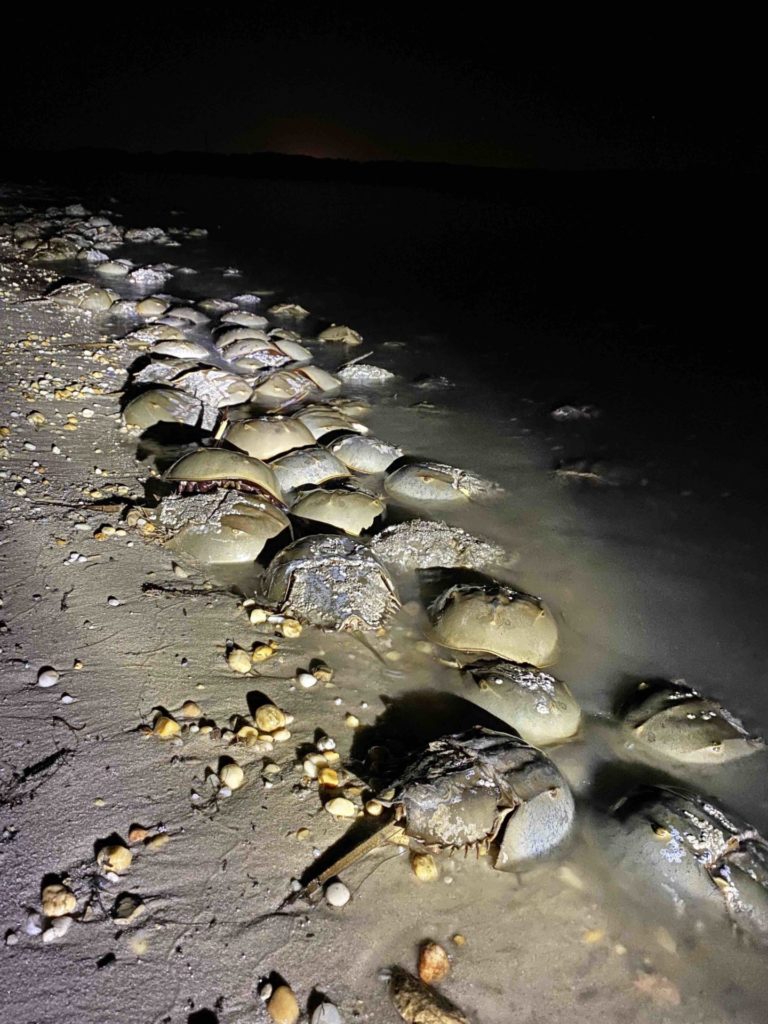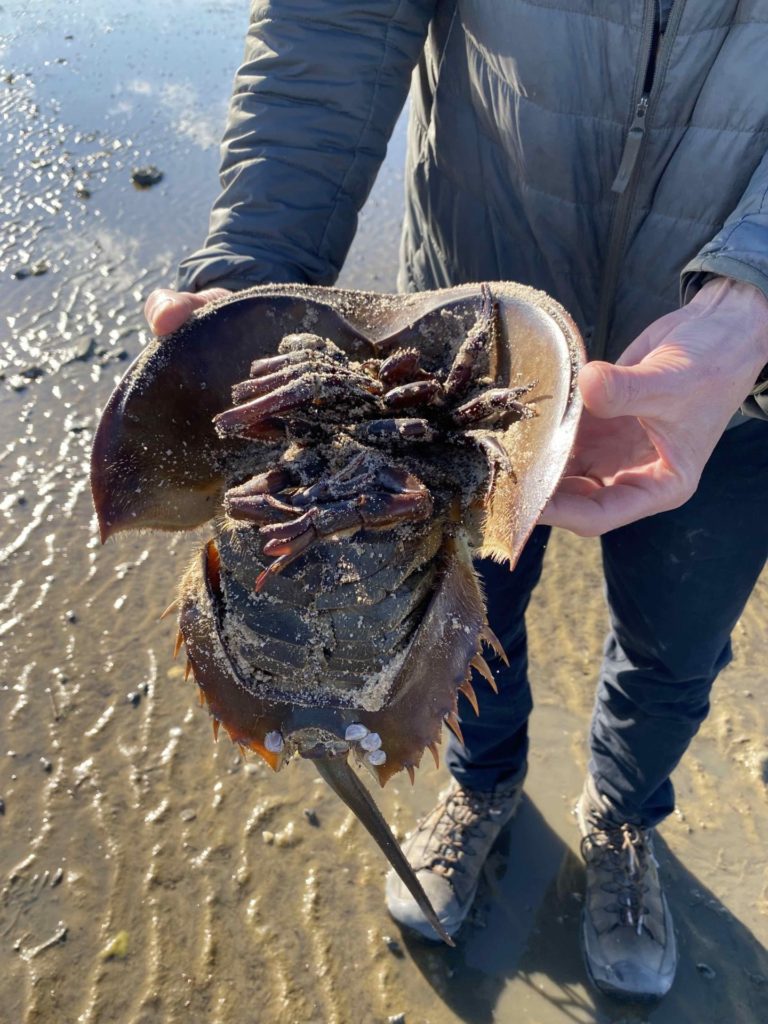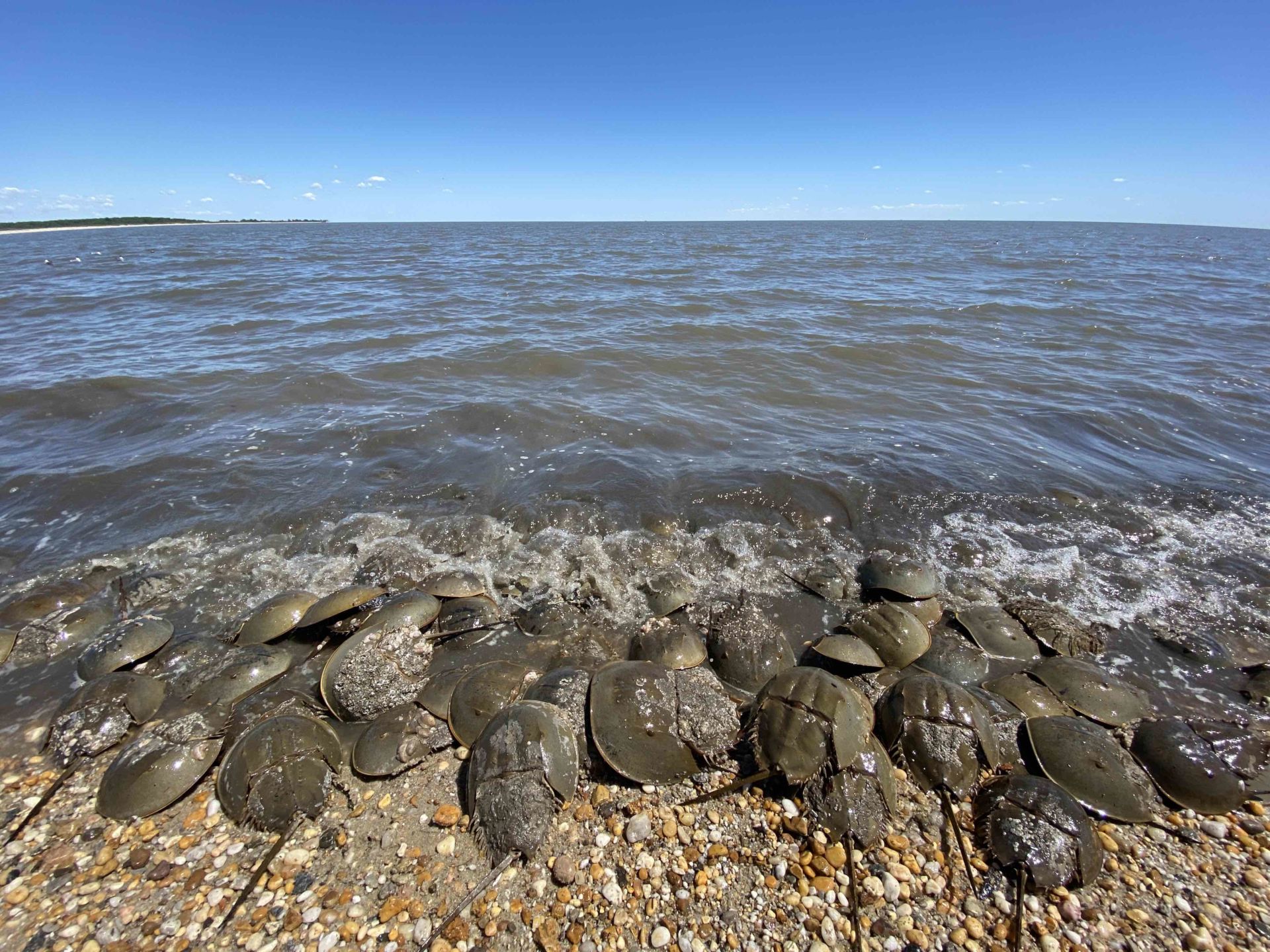A new moon, it is almost midnight and I’m on a beach in Delaware, watching horseshoe crabs coming to the surf line to spawn. They are not actually crabs, but arachnids. Their closest biological relatives are ticks, spiders and scorpions. Their bodies flout all normal rules. They have ten eyes, or some say nine, some on their spiky tail. They look like helmets, some of their shells have crusts of barnacles or wafting wigs of seaweed.
They are my choice of ambassador for biodiversity conservation.


The horseshoe crabs I am watching on this long Delaware beach pre-date anything I can imagine. The dinosaurs, the Himalayas, the Andes, religions and us. They have been existing on this planet for over 450 million years, and despite five mass extinctions, have not changed very much. They help millions of other living things. Their shells offer home and shelter to sponges, mussels and snails. Their eggs feed birds, fish and other marine creatures. With the massive landing of the crabs, comes the arrival of migratory birds. Red knots start in Tierra del Fuego in Argentina, fly all the way to the Arctic to breed via the crab spawning beaches of Delaware and other pit stops. They stay for one month and every minute, every egg is important. Refueled, they reach the Arctic and then they fly all the way back. Simply amazing. Bemusing nature!
I watched this event with a sense of childish excitement. It was a “wow” moment. What will happen next, I kept asking myself. And that’s what biodiversity means. It’s easy to forget it if you don’t see it; or easy to describe it in my office in official language about UNDP’s work on nature. But what I saw happening on that Delaware beach last week was ancient, present and indifferent. A horseshoe crab has its own agenda!
Related Articles: On Extinction, Food, Climate and Inequality | Biodiversity Talks: Kickstarting a Paris-style Nature Agreement?
The copper-based blue blood of horseshoe crabs stubbornly destroys bacteria. Their blood is used for testing the safety of vaccines, including COVID vaccines, as well as for assessing the safety of prosthetics, organ transplants and more. Apparently, there is no other test that can analyse the purity of medications and cleanliness of medical devices with the same accuracy as the horseshoe crab blood. Horseshoe crabs save so many lives every year, especially in this time of COVID crisis. It has very probably saved yours and mine. Horseshoe crabs “donate” 30% of their blood and get released. In South Carolina, you get a prison sentence for messing with them.
We just need to give biodiversity its space. If we do, those crabs might make another 450 million years.
I chose the horseshoe crab as my biodiversity ambassador for several reasons. One is time. They first emerged in the Ordovician Period 450 million years ago, more than 447 million years before the first human Homo habilis and 219 million years before the first ever dinosaur on Earth. My hero Sir David Attenborough and I share a birthday – May 8. He is 95 and his lament in A Life on Our Planet released last year was that so much had changed so quickly. Watching these crabs, I felt that keenly. 66% of wildlife populations have gone in my life time. In the next few decades, a million species may become extinct.
In times past, the local Delaware apple farmer paid children for a sack of horseshoes and used them for fertiliser. The crabs were forever.
While taking videos and photos on that beach, I suddenly imagined the same beach with no horseshoe crabs. If such a day becomes a reality, that would mean that we have failed. Humanity will have failed to protect biodiversity that is our lifeline and safety net. Our precious resource and source of joy, inspiration and wellbeing. We will have flicked the switch on 450 million years of survival. And when that light goes out, so do so many more.
The crabs are still coming, the birds still fly and feast, and it is not too late. We just need to give biodiversity its space. If we do, those crabs might make another 450 million years.
Editor’s Note: The opinions expressed here by Impakter.com columnists are their own, not those of Impakter.com. — In the Featured Photo: Horseshoe crabs on a beach in Delaware. Featured Photo Credit: Midori Paxton.










